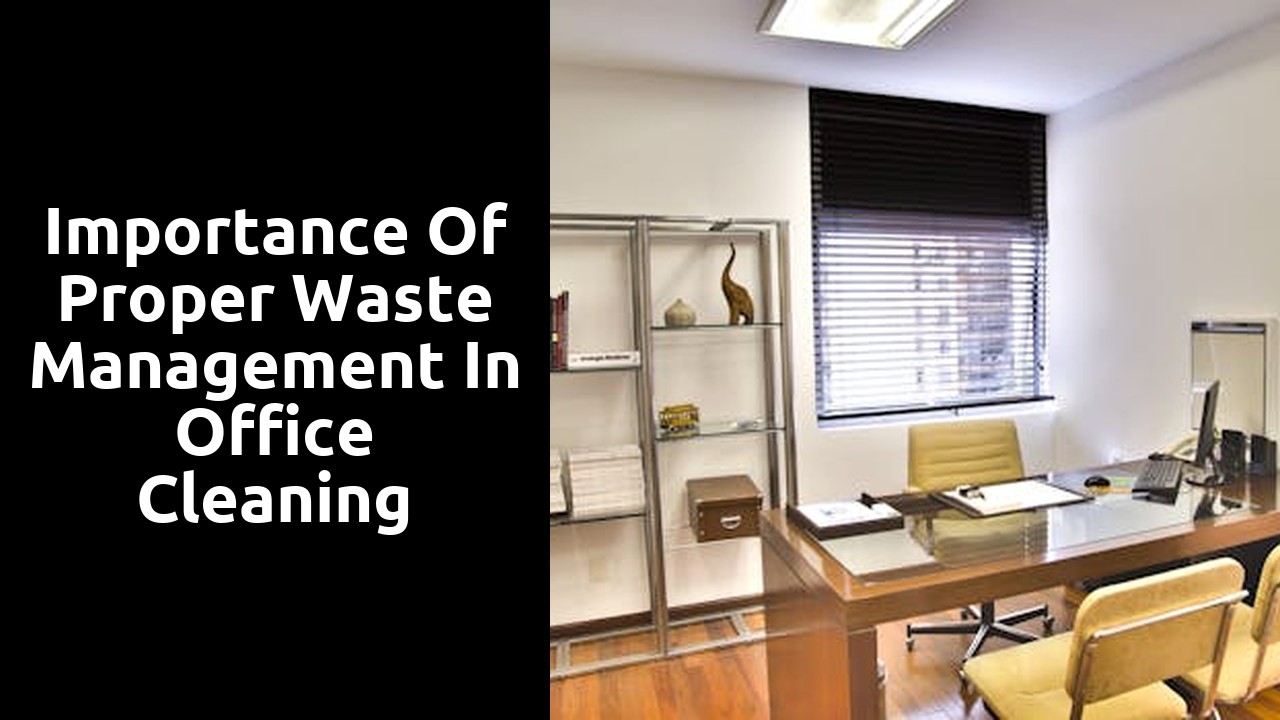Importance of Proper Waste Management in Office CleaningSpot Cleaning Techniques for Immediate Stain Removal
Understanding the Science of Carpet Fibres and Cleaning Methods Tailoring Cleaning Approaches to Different Carpet Materials Implementing a Comprehensive Carpet Maintenance Plan for Offices
How can I tailor my carpet cleaning approach based on the carpet materi als?Addressing WasteRelated Health and Efficiency Concerns
Regular maintenance of office carpets is essential to preserve their appearance and ensure they stay clean and hygienic. Here are some practical DIY carpet cleaning tips to help you maintain your office carpets between professional cleanings. Firstly, create a regular vacuuming schedule to remove surface dirt and debris. Focus on high-traffic areas and spots where spills are common to prevent dirt from settling deep into the carpet fibres. Additionally, consider using a carpet rake to fluff up the fibres and remove trapped dirt for a refreshed look.Ensuring Adherence to Environmental Regulations and StandardsIn case of spills or stains, address them promptly to prevent permanent discolouration. Blot the spill with a clean cloth or paper towel to absorb as much liquid as possible. Avoid rubbing the stain, as this can damage the carpet fibres and spread the spill further. Use a mild detergent solution or a carpet stain remover according to manufacturer's instructions to gently clean the affected area. Always remember to test the cleaning solution on a small, inconspicuous area of the carpet first to ensure compatibility and prevent any damage.
When it comes to maintaining the cleanliness of office carpets, immediate action is essential when dealing with spills and stains. Spot cleaning techniques play a crucial role in preventing stains from setting and becoming more challenging to remove. The key to successful stain removal lies in addressing spills promptly and using the right cleaning approach.Why is proper waste management important in office cleaning?For liquid spills, start by blotting the area with a clean cloth or paper towel to absorb as much of the liquid as possible. Avoid rubbing the stain, as this can spread it further into the carpet fibres. Once excess liquid has been removed, prepare a solution of water and a mild detergent. Gently dab the stained area with the solution using a clean cloth, working from the outer edges towards the center to prevent spreading. Repeat this process until the stain is no longer visible, then blot the area with a clean, damp cloth to remove any remaining residue.
Understanding the Science of Carpet Fibres and Cleaning MethodsHow does inadequate waste handling impact office productivity?Carpet fibres play a crucial role in determining the most effective cleaning methods for office carpets. Understanding the composition of these fibres is essential in maintaining the carpet's appearance and longevity. Wool, nylon, polyester, and polypropylene are common fibres used in office carpets, each with its unique characteristics and maintenance requirements.
When selecting cleaning methods, it is imperative to consider the specific type of carpet fibre to avoid causing damage or reducing its lifespan. For instance, wool carpets are sensitive to high pH cleaners, while nylon carpets are more resilient and can withstand stronger cleaning solutions. By tailoring the cleaning approach to the carpet fibre type, office managers can ensure thorough cleaning without compromising the carpet's integrity.
When it comes to maintaining office carpets, one crucial aspect to consider is the type of materials they are made from. Different carpet fibers require specific cleaning approaches to ensure their longevity and cleanliness. For example, wool carpets are known for their durability and natural resistance to staining, but they can be sensitive to harsh chemicals and high heat during cleaning. Therefore, it is essential to choose cleaning products that are gentle yet effective in removing dirt and stains from wool carpets.What legal compliance requirements should offices consider for waste disposal?On the other hand, synthetic carpets, such as nylon or polyester, are more resilient to heavy foot traffic and stains. They can withstand more rigorous cleaning methods, including steam cleaning or hot water extraction. However, it is still important to avoid using excessively strong chemicals that could damage the fibers over time. By understanding the properties of different carpet materials, office managers can tailor their cleaning approaches to ensure that each type of carpet is cared for properly, maintaining its appearance and functionality for years to come.
Understanding the science of carpet fibres is crucial for selecting the appropriate cleaning methods and products that are safe and effective for specific carReducing Costs Associated with Disposal and Cleanup Servicespet materials.
Inadequate waste handling can lead to cluttered workspaces, unpleasant odours, pest infestations, and potential health hazards, all of which can reduce employee productivity and morale.